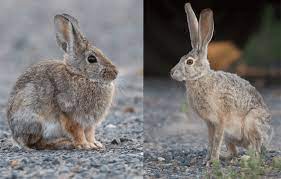Power of Huskies: Are Huskies Good Protectors?

Are huskies good protectors? This is a question that many potential pet owners ask themselves before bringing a husky into their family. Known for their striking beauty and friendly temperament, huskies are often portrayed as loving and sociable dogs. However, their protective instincts are often underestimated.
Siberian Huskies Guard Dogs
Are Siberian Huskies Good Guard Dogs? Siberian Huskies are known for their striking appearance and friendly demeanor, but they are not typically considered good guard dogs. These majestic canines are more inclined towards being affectionate and sociable rather than protective. While they may alert you to the presence of strangers with their characteristic howling, their natural temperament leans towards being welcoming rather than intimidating
Huskies’ Natural Instincts and Protective Qualities
Huskies may not have the intimidating appearance of a Doberman or a German Shepherd, but their natural instincts make them excellent protectors. These dogs were originally bred for sledding and working in harsh Arctic conditions, which required them to be alert and protective of their owners.
One of the key qualities that make huskies good protectors is their loyalty. They form strong bonds with their human family and will do whatever it takes to keep them safe. This loyalty extends not only to their immediate family but also to their home and territory. Huskies are known to be territorial, which means they will defend their space and loved ones if they feel threatened.
In addition to their loyalty, huskies have a strong sense of intuition. They can sense danger and act accordingly, whether it’s alerting their owners to potential threats or standing their ground when faced with an intruder. This innate ability to assess situations and react appropriately makes them excellent protectors.
How Huskies Can Be Trained To Be Effective Protectors
While huskies have natural protective instincts, training is still essential to harness and channel their protective qualities effectively. With proper training and socialization, huskies can become reliable and effective protectors.
The key to training a husky for protection is to establish clear boundaries and reinforce obedience. Huskies are intelligent dogs, but they can also be independent and stubborn. It’s important to establish yourself as the pack leader and to set consistent rules and expectations. This will help your husky understand their role as a protector and follow your commands when needed.
Socialization is another crucial aspect of training a husky for protection. Exposing them to different people, animals, and environments from an early age will help them become well-rounded and confident in various situations. It will also teach them to differentiate between normal interactions and potential threats.
Case Studies Of Huskies Acting As Protectors
There are numerous real-life examples of huskies acting as protectors and going above and beyond for their owners. One such case involved a husky named Balto. Balto’s owner, Michelle, lived alone and often went for late-night walks in her neighborhood. One night, while they were on their usual route, Balto suddenly stopped and growled at a man lurking in the shadows. Michelle immediately recognized the danger and quickly turned around. Balto’s instinctive response potentially saved her from a dangerous situation.
Another remarkable case involved a husky named Luna. Luna’s family had recently moved to a new neighborhood and were still getting to know their neighbors. One evening, Luna started barking aggressively at a stranger who was approaching their house. The family initially dismissed Luna’s behavior as overreacting, but they soon discovered that the stranger had ill intentions. Thanks to Luna’s protective instincts, they were able to prevent a potential break-in.
These case studies highlight the bravery and protective nature of huskies. They are not just friendly companions but can also be relied upon to keep their loved ones safe.
Common misconceptions about Huskies as protectors
Despite their natural protective instincts, huskies are often overlooked as protectors due to common misconceptions. One of the most prevalent misconceptions is that huskies are too friendly and sociable to be effective guard dogs. While it’s true that huskies are generally friendly and sociable, their protective instincts kick in when they sense a threat.
Another misconception is that huskies are not as intimidating as other breeds. While they may not have the same physical appearance as a Doberman or a German Shepherd, huskies make up for it with their fearless and determined nature. Their bravery and willingness to put themselves in harm’s way make them formidable protectors.
Lastly, some people believe that huskies are not capable of distinguishing between a real threat and a harmless situation. However, huskies are intelligent dogs and can differentiate between normal interactions and potential dangers. With proper training and socialization, they can learn to assess situations and react accordingly.
Huskies as Family Protectors vs. Property Protectors
When considering huskies as protectors, it’s important to understand that they have different strengths depending on the context. Huskies are naturally inclined to protect their family members, making them excellent family protectors. They form strong bonds with their owners and will do whatever it takes to keep them safe.
However, huskies may not be as effective as property protectors compared to breeds specifically bred for guarding purposes. Their friendly and sociable nature may make them more prone to greeting strangers rather than deterring them. While they can still act as a deterrent due to their size and protective instincts, they may not have the same level of
intensity As Breeds Specifically Bred For Guarding.
Ultimately, the decision to choose a husky as a family protector or a property protector depends on your specific needs and circumstances. If you’re looking for a loving and loyal companion who can also provide an extra layer of security for your family, a husky may be the perfect choice.
Other factors to consider when choosing a protector breed
When choosing a protector breed, it’s essential to consider factors beyond their protective instincts. Temperament, energy level, and compatibility with your lifestyle are all important aspects to consider.
Huskies are energetic and require regular exercise to keep them mentally and physically stimulated. They thrive in active households where they can participate in outdoor activities such as hiking or running. If you lead a sedentary lifestyle or don’t have the time to dedicate to regular exercise, a husky may not be the best choice for you.
Additionally, huskies are known for their independent nature. While this independence can be an asset in certain situations, it can also make training more challenging. Consistency, patience, and a firm yet gentle approach are essential when training a husky for protection.
Tips For Training and Socializing Huskies for protection
Training and socialization are crucial aspects of preparing a husky to be an effective protector. Here are some tips to help you train and socialize your husky for protection:
Start training early: Begin training your husky as soon as you bring them home. Establish clear rules and boundaries from the beginning to set the foundation for their protective training.
Socialize extensively: Expose your husky to different people, animals, and environments from an early age. This will help them become comfortable in various situations and differentiate between normal interactions and potential threats.
Reinforce obedience: Huskies are intelligent but can be independent and stubborn. Consistent reinforcement of obedience commands is crucial to ensure they follow your instructions when needed.
Use positive reinforcement: Reward your husky with praise, treats, or playtime when they display protective behaviors or follow commands correctly. Positive reinforcement will motivate them to continue behaving in a protective manner.
Seek professional help if needed: If you’re having difficulties training your husky for protection, don’t hesitate to seek the assistance of a professional dog trainer. They can provide guidance and tailor training techniques to suit your husky’s needs.
Remember, training and socialization should be an ongoing process throughout your husky’s life. Consistency and reinforcement will help ensure that their protective instincts are honed and reliable.
Challenges and Considerations When Owning a Protective Husky
Owning a protective husky comes with its own set of challenges and considerations. It’s important to be aware of these factors before bringing a husky into your family:
Exercise requirements: Huskies are highly energetic and require regular exercise to keep them mentally and physically stimulated. Be prepared to dedicate time each day for activities such as walks, runs, or playtime.
Grooming needs: Huskies have a thick double coat that requires regular brushing to prevent matting and keep their fur healthy. They also shed heavily, especially during season changes. If you’re not prepared for regular grooming and dealing with shedding, a husky may not be the best fit for you.
Training commitment: Training a husky for protection requires commitment, consistency, and patience. Huskies can be independent and stubborn, so training may take longer compared to other breeds. Be prepared to invest time and effort into their training.
Socialization requirements: Huskies need extensive socialization to become well-rounded and confident dogs. This means exposing them to various people, animals, and environments from an early age. If you’re unable to provide adequate socialization opportunities, it may lead to behavioral issues.
Potential aggression: While huskies are generally friendly and sociable, their protective instincts can sometimes lead to aggression. Proper training and socialization are key to preventing aggressive behaviors from developing.
Time commitment: Huskies are pack animals and thrive on companionship. They require attention and interaction from their owners. If you have a busy lifestyle or are away from home for long periods, a husky may not be the best choice.
Considering these challenges and considerations will help you determine if a husky is the right fit for you and your family’s needs.
Conclusion: The Potential Of Huskies As Protectors and Finding The Right Fit For Your Needs
In conclusion, huskies are indeed good protectors, despite the misconceptions surrounding their protective abilities. Their natural instincts, loyalty, and intuition make them excellent protectors for their human family and territory. However, it’s important to understand that their protective qualities can be further enhanced through proper training and socialization.
When considering a husky as a protector, it’s crucial to evaluate your specific needs and circumstances. Huskies excel as family protectors due to their loyalty and strong bonds with their owners. However, they may not be as effective as property protectors compared to breeds specifically bred for guarding purposes.
Factors such as temperament, energy level, and compatibility with your lifestyle should also be considered when choosing a protector breed. Huskies are energetic and independent dogs that require regular exercise, consistent training, and extensive socialization.
Owning a protective husky comes with its challenges, including exercise requirements, grooming needs, and training commitment. It’s important to be prepared for these challenges and to invest time and effort into your husky’s well-being.
Ultimately, if you’re looking for a dog that not only brings joy and love to your life but can also provide an extra layer of security, a husky may be the perfect choice. Their beauty, loyalty, and protective instincts make them a unique and powerful breed that can keep you safe and sound.



